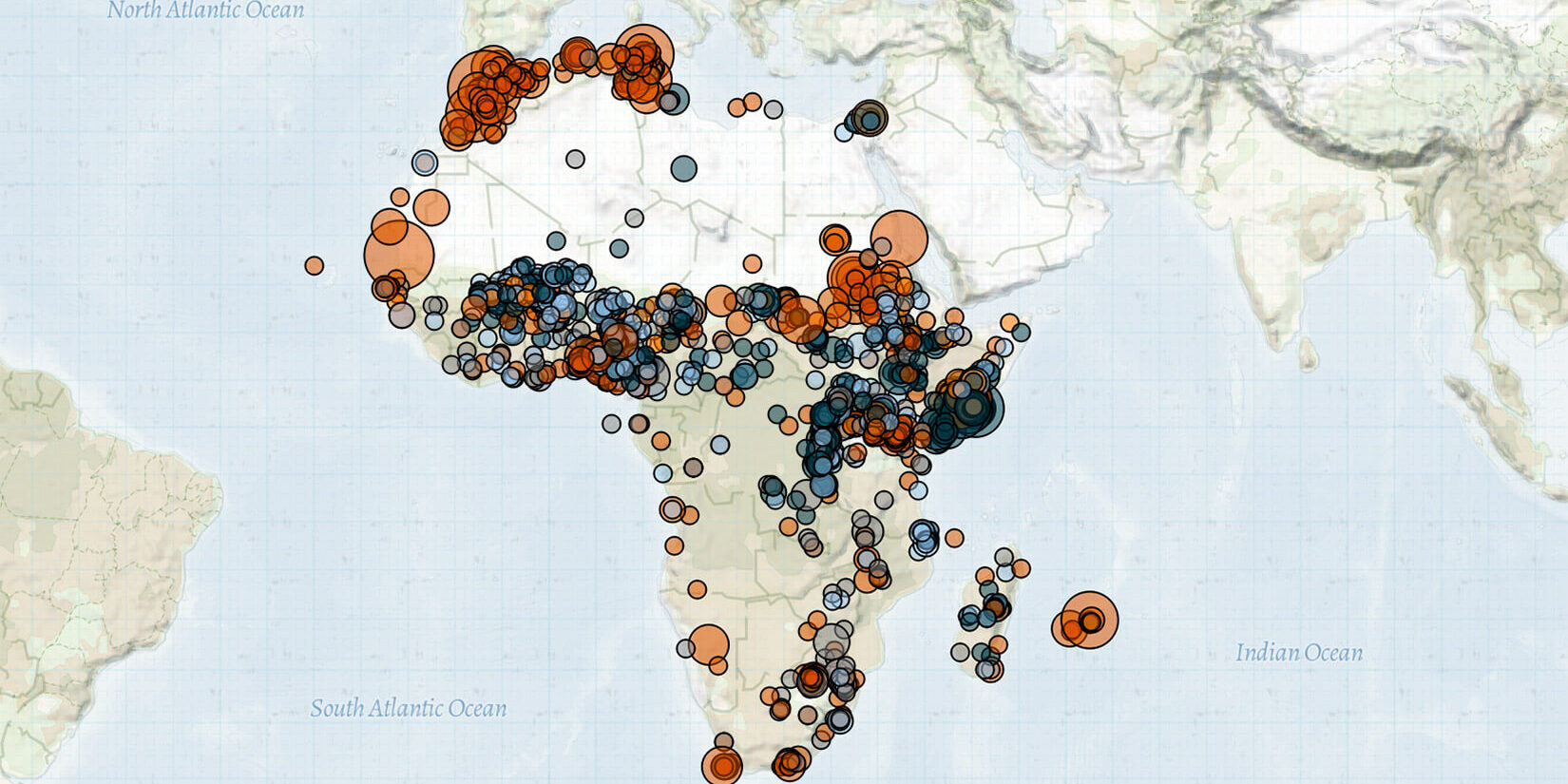Weekly reports on the latest conflict developments in Mozambique and Ethiopia are made available by the Cabo Ligado and Ethiopia Peace Observatory projects, respectively.
Last week in Africa, Islamist militant offensives continued in Burkina Faso, Mali, and Niger; clashes erupted between Bashagha supporters and militants supporting the Government of National Unity in Libya; a deadly attack by the Ituri Self-Defense Popular Front (FPAC-Zaire) left many killed in the Democratic Republic of Congo; and Somaliland forces took control of territory within the Sool region.
In Burkina Faso, levels of violence remained high in the Sahel and East regions, where the Burkinabe air force targeted several suspected militant positions with airstrikes. Militants of the Islamic State Sahel Province (IS Sahel) conducted attacks in the Sahel region, killing several civilians in the Seno and Oudalan provinces. Also in the Sahel region, Al Qaeda-affiliated Jama’at Nusrat al-Islam wal-Muslimin (JNIM) militants engaged in armed confrontations with Volunteers for the Defense of the Homeland (VDP) and the Burkinabe army in the Yagha and Soum provinces. JNIM militants also continued to destroy and sabotage infrastructure, including schools, a mayor’s office, and power poles in Gnagna province of the East region, Kossi province in the Boucle du Mouhoun region, and Kourittenga province in the Center-East region.
In Mali, violence remained concentrated in the Mopti region. Malian military claimed to have killed dozens of suspected JNIM and JNIM-affiliated Ansaroul Islam militants in the Douentza circle. Malian military authorities also announced foiling an attempted coup d’état by military officers with unnamed Western support, arresting seven suspects (RFI, 17 May 2022). The Malian authorities further withdrew from the G5 Sahel anti-militant regional coalition by suspending participation in the coalition’s joint military force (UNSC, 18 May 2022). The neighboring Niger president, Mohamed Bazoum, stated that the “G5 Sahel is dead” due to Mali’s withdrawal (Anadolu Agency, 19 May 2022).
In Nigeria, militia-related violence was highest in Kaduna, Katsina, and Niger states. Police forces repelled some incursions from gunmen throughout the northwest, resulting in tens of fatalities during clashes. Military and police forces also conducted joint security operations against militias operating in Niger state, contributing to the 157% increase in violence in Niger last week relative to the past month flagged by ACLED’s Subnational Surge Tracker. In Borno state, Nigerian troops used artillery fire against a Boko Haram (JAS) convoy in Konduga Local Government Area, destroying three gun trucks. Elsewhere, gunmen killed a People’s Democratic Party (PDP) opposition party member contending for the Akwa Ibom state House of Assembly in the 2023 general elections.
In Libya, the House of Representatives-appointed Prime Minister Fathi Bashagha attempted to enter Tripoli with support from the Nawasi Brigade and other affiliated militias, leading to armed clashes between Bashagha supporters and the pro-Government of National Unity militias.
In the Democratic Republic of the Congo, attacks by armed actors decreased despite continued violence within the eastern part of the country. The majority of violence occurred in Ituri province, where the FPAC-Zaire killed almost a dozen civilians, abducted others, and torched houses in Djugu territory. Military forces (FARDC) continued offensives against the Allied Democratic Forces (ADF), clashing with the group within Walese Vonkutu commune in Irumu. In North Kivu, clashes between the FARDC and the March 23 Movement (M23) continued in Rutshuru territory, with the military shelling some M23 positions.
In Sudan, a suspected Ethiopian Amhara militia killed farmers and abducted civilians in the Basundah locality of Gedaref, near the disputed Gallabat-Metema border. Nationwide demonstrations continued amidst security forces arresting leaders of the opposition Sudanese Communist Party following meetings with heads of the Sudan People’s Liberation Movement-North (Abdelaziz el Hilu) and Sudan Liberation Movement/Army (Abdul Wahid al-Nur) factions in South Kordofan (Radio Dabanga, 20 May 2022). In Abyei, Twic Dinka clashed with Ngok Dinka over territorial control of areas south of the Kiir River, leaving some killed and injured, contributing towards a 140% increase in violence relative to the past month as flagged by ACLED’s Subnational Surge Tracker. The dispute also resulted in violence in South Sudan when Twic Dinka gunmen fired upon a convoy linked to the Mayom county commissioner in Twic county, killing six people. Meanwhile, violence resurged in Leer county in Unity state, where Haak and Jagei Nuer militias clashed with local Dok Nuer militias, leaving many fatalities. The commissioner of neighboring Mayendit county has been implicated in the events (Eye Radio, 17 May 2022).
In Kenya, a suspected Pokot militia injured civilians and stole thousands of livestock in Turkana county, targeting a veterinary vaccination center in Lokichar and the Kenya Wildlife Service (KWS) in Kainuk. As a result of increased livestock theft and insecurity in Turkana county, the government issued a seven-day ultimatum for Pokot pastoralists to return to their villages in Baringo county, having set up settlements in Turkana due to a draught (Nation, 18 May 2022).
In Somalia, Al Shabaab militant offensives against security forces and peacekeepers increased in Lower Shabelle. However, Al Shabaab lost control of Ceel Gaal village following an operation by military special forces. Without resistance, security forces also took control of territory within the Belet Weyne, Buur Hakaba, Baydhaba, and Jowhar regions. In the capital, Al Shabaab militants targeted political figures, firing several mortar shells following the conclusion of the presidential voting. One mortar hit the residence of a presidential candidate in Mogadishu, and an IED explosion injured a former member of the Federal Parliament. Finally, Somaliland forces gained control of Boocame from Puntland Dervish forces.






